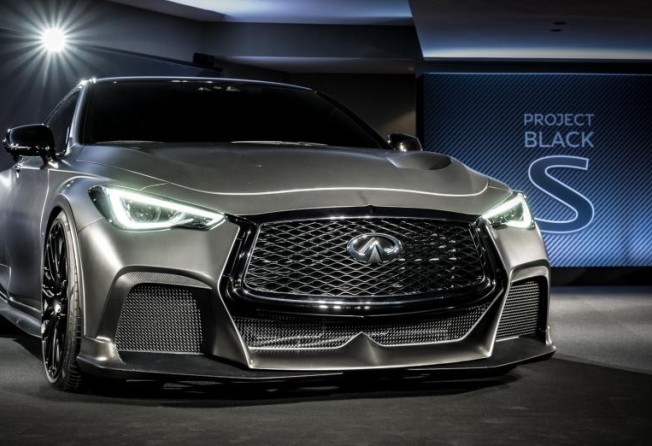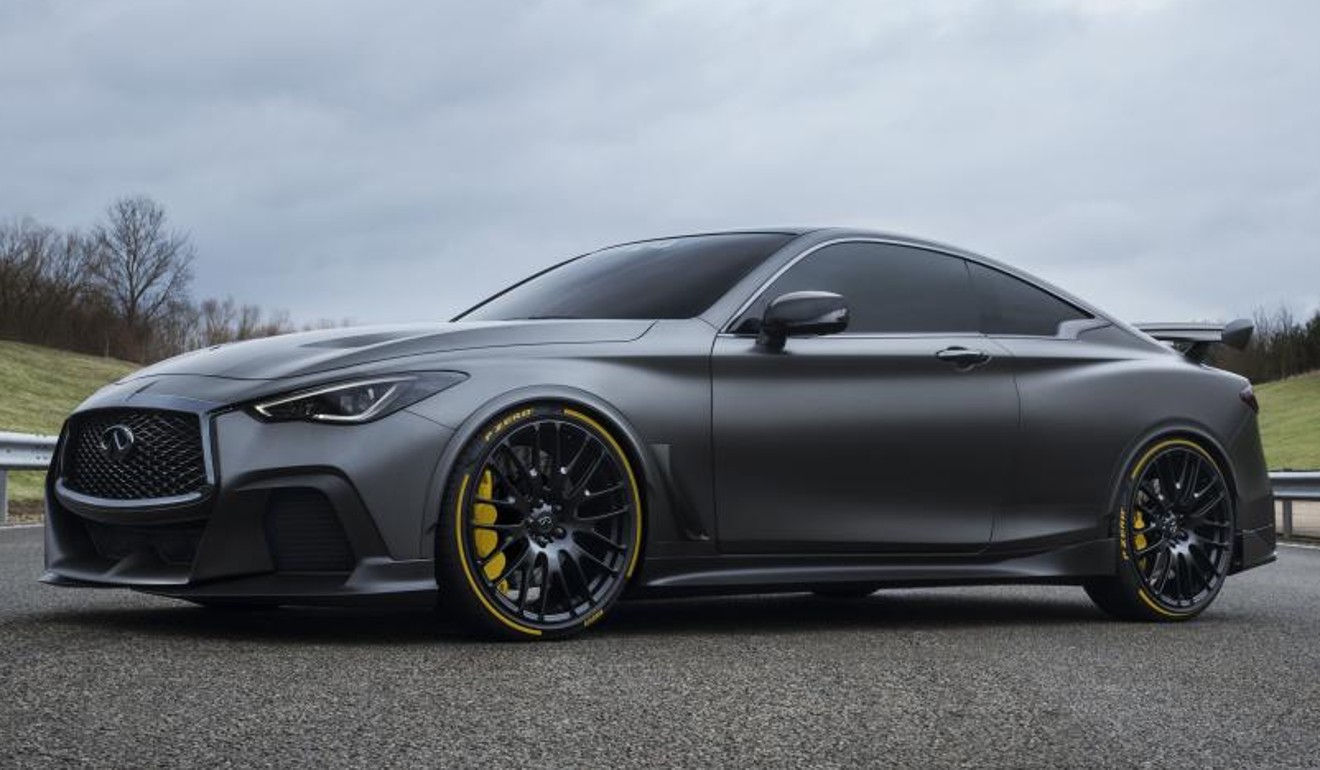Infiniti and beyond: Hong Kong gets glimpse of Project Black S, F1-inspired road car of future
Hybrid concept car, based on luxury carmaker Infiniti’s Q60 coupe, developed with Renault Sport Formula One team, first unveiled at Geneva Motor Show

Driving a Formula One racing car on the road may no longer be an impossible dream for the general public in the near future.
For the luxury carmaker Infiniti is jointly developing the first Formula One-inspired road car with the Renault Sport Formula One team.
The matte grey hybrid concept car, Project Black S, which uses F1 technology and engineering, is based on the 400hp, 3.0 litre V6 twin-turbo Infiniti Q60 coupe.
First unveiled at this year’s Geneva International Motor Show in March, the car is the latest project between Infiniti and the Renault F1 team, which first teamed up last year to develop hybrid Formula One car technology.

“In one year’s time, we will make a decision about [whether we will be] going into [mass] production or not,” says Tommaso Volpe, global director of Infiniti Motorsport, which is now developing two demonstration versions of its concept car.
Since new F1 regulations were introduced in 2014, F1 car development has shifted towards the use of hybrid technology. This led to Infiniti – renowned for its hybrid technology – collaborating with Renault.
With [Project Black S] ... we are taking advantage of the expertise of Renault and its technology and transferring it to our core business
“With [Project Black S] ... we are taking advantage of the expertise of Renault and its technology and transferring it to our core business,” Volpe says.
Cyril Abiteboul, managing director of Renault Sport Racing, says: “In Formula One, you would [normally] always maximise performance and efficiency.
“You don’t really care too much about factors like packaging and architecture, [which] come behind performance and competitiveness.”
The concept car uses F1 technologies such as an energy recovery system, which recovers and stores both kinetic energy from braking and heat energy from exhaust gases for use later to boost power and torque during acceleration.

The Project Black S features extensive use of carbon-fibre, including the large front splitter, rear diffuser, wings and side skirts, to minimise weight and enhance the downforce.
Ultra-thin aero “blades” in the side sills in front of the rear wheels channel air around the concept car’s lower body to enhance its aerodynamics.
The fixed rear wing, also made of carbon fibre, stands proud of the boot lid, increasing the downforce at speed, which helps the vehicle hug the road at every turn.
“We need to think that the drivers of this car in future could be you and me – not professional drivers,” Abiteboul says.
“So we need to have all sorts of things to make sure the car is ‘smart’ to help the driver to a certain degree.”